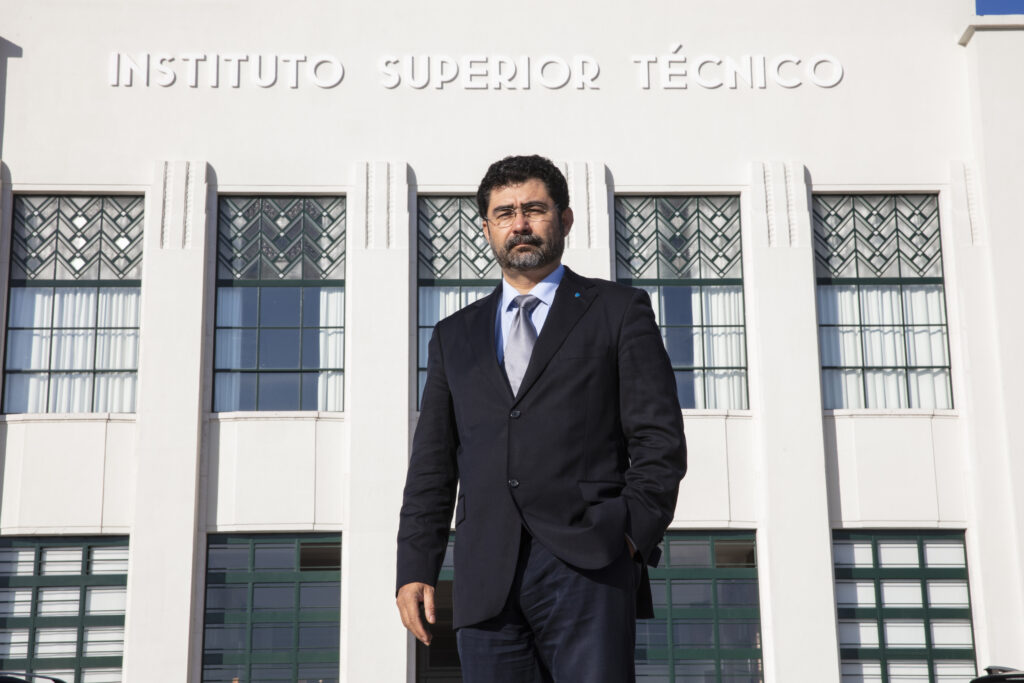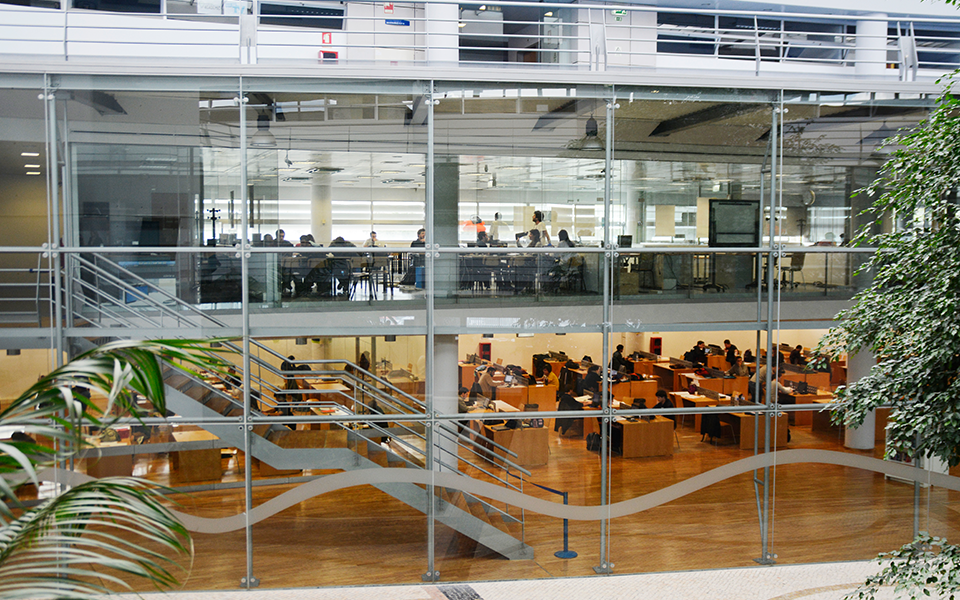For Ruggero Colasso, it is necessary to anticipate and plan for problems such as the aging of teachers, or to employ researchers and teachers or the financial means to do so. The head of the country's largest engineering college also advocates building effective support mechanisms for business R&D, in order to create added value in services, goods and qualified labor and avoid over-qualification.
The names do not change the speech of the President of the Higher Technical Institute. A materials engineer, graduated from the largest engineering college in the country, where he has always studied, Rogerio Colaco is a businessman with a clear vision of what the strategy for higher education and science should be and he explains it in this interview, in which each line is a proposed solution to a problem, Which makes it mandatory to read.
What is the priority of the new Minister of Education, Science and Innovation regarding higher education?
Preliminary observation: The fact that the current government has considered that higher education is not important enough to justify the establishment of a ministry is bad news not only for higher education, but above all, for the country. If there is one sector that has contributed decisively to the massive social and economic transformation that has taken place over the past 25 years, it is higher education, as an essential element in the social uplift, progress, regional cohesion and cultural, scientific and economic development of the country. However, the first priority of the Minister responsible for the higher education sector should be to carefully plan his priorities and how to implement them, preferably in partnership with higher education institutions.
In general, how do you see 2024 in higher education and science in Portugal? What are the main challenges you see?
There are three main challenges for higher education and science in Portugal in the coming years, which will begin to be felt in 2024 in a very acute way.
Let's start with the first.
The first is the urgent need to plan in the medium/long term for the recruitment needs of professional professors/researchers by universities and research centres, and to provide institutions with financial resources to be able to recruit them, which is necessary to renew the system: aging in the higher education system, especially in some specific areas, represents A challenge that you must start planning for. This planning must be accompanied by other complementary planning, which is building effective support mechanisms for business research and development, creating added value in services and goods, especially those that are exportable, and providing qualified job opportunities. Without this, the enormous efforts made over the past decade to invest in advanced training not only risk being lost, but even worse, they risk creating a negative social impact if unemployment rates rise above average among the most qualified population.
the next?
The second is to readapt the higher education offer taking into account the declining number of births in Portugal. Over the next 10 years, the number of Portuguese turning 18 each year will decrease from around 105,000 (in 2024) to 85,000 (in 2034). Now, at a time when we already have a percentage of the population aged 18 years entering higher education (about 55%), a value higher than the European average, it will be imperative to plan the training offer, especially in public higher education, in the decade. Next.
We look not only at demographic data, but also at the needs of the country, where supply is growing Reskilling that it High skill This should be the way to compensate for the low demand for undergraduate programmes. Once again, you need to start planning, and now is the time.
finally.
The third arises from the profound changes that digital platforms for content provision, assessment and artificial intelligence (which are already being introduced) will bring to the teaching and learning process, especially to the teacher-student relationship. Knowledge, at this moment, is fully available to students, which was not the case 10 years ago, for example. As such, creating a hierarchy based on the fact that the teacher has the information and the student does not – the model in which the teaching/learning process has always worked – no longer makes sense. Preparing teachers, schools, universities and students for this new reality is crucial to maintaining the quality, demand and, above all, efficiency of the teaching/learning process.
What are your organization's priorities for the new year?
My organization has three very clear key priorities for the coming year.
The first is to continue the investment and rehabilitation plan for our infrastructure, which we started a year ago, modernizing our facilities and making them more environmentally sustainable and more suitable for training our students.
The second is to continue to monitor the modernization of our education at the first, second and third cycle levels, adapting it to the current tools, challenges and needs of the country, while at the same time creating conditions for our students to have a stimulating and inspiring experience during your time. In technico.
The third is to continue our talent recruitment program. on all levels. At the level of teachers, researchers and support staff. And also, of course, at the level of students at all levels of study: Bachelor’s, Master’s and Doctorate, without forgetting the level of higher degrees in important fields such as cybersecurity, radiation protection, industrial management and many others.
Taguspark Campus
The Higher Technical Institute was founded on May 23, 1911 by Alfredo Bensaudi, who was also its first director. The largest engineering school in the country, but also a school of science and architecture, very international, open to the community and companies, innovation, entrepreneurship, job creation, value and knowledge, Técnico is recognized, within Portugal and beyond, for the quality of what it does. Currently, in her three cycles of studies and three Campus – Alameda, Taguspark and Tecnológico e Nuclear – hosts 11,296 students and provides three university residences. Since 2009, around 60 companies have been created at Técnico spin off.
Since January, JE magazine has been publishing interviews about higher education in Portugal. Read interviews with:
António Almeida Dias, President of the Portuguese Association for Private Higher Education (APESP): “impact [das ordens e associações profissionais] “It's about the number of places and the accreditation of the courses.”
Paulo Jorge Ferreira, Rector of the University of Aveiro: “The contracts that will be signed are permanent, but the financing is risky.”
María de Lourdes Rodriguez, Dean of ISCTE-IUL: He predicts “a turning point in public policies” with implications for the future
Paulo Aguas, President of the University of the Algarve: “It is important to improve the rules for distributing the funds of the Evaluation Office” and include science in the allocations
Amilcar Falcão, Dean of the University of Coimbra: “With the fall of the government, the tendency for entropy increases”
Luis Ferreira, Dean of the University of Lisbon: “Without further investigation we will not obtain salvation“
José Moreira, President of SNESup – National Union of Higher Education: “We hope that the next government team will be open to negotiating and not just listening.”

“Wannabe internet buff. Future teen idol. Hardcore zombie guru. Gamer. Avid creator. Entrepreneur. Bacon ninja.”


